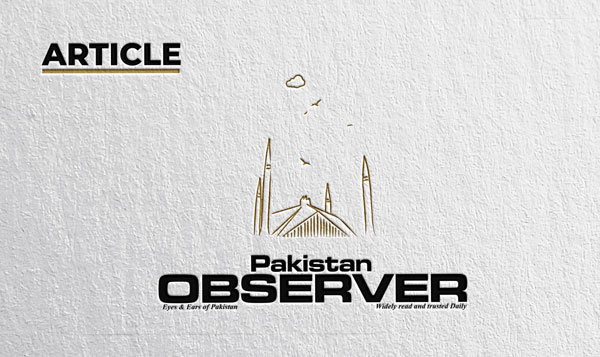Polarization: A threat to democracy in Pakistan
POLARIZATION is the division of a society into two extreme ends. It is shaking societies and democracies and has become a global issue. In fact, the greatest democracies of the US and EU have no exception from this curse as it has increased in the last decades, challenging the basic system of democracy and leading it to failure. Neither the developed nor developing world is free from its communal, economic, political and theological aspects.
At the national level, we need to discuss this issue more for better understanding and solutions. The purpose of Pakistan’s creation was unity for all and to remove many social and religious discrimination from society. Yet, the movement was too motivated because of polarization. But the conditions after partition are altogether conflicting, leading the state towards disaster in the form of intolerance, hate, prejudice and extremism. The polarization has created a diversification between the voters and the political leaders.
Pakistan’s structure of governance has experienced so many transitions from democracies to dictatorships. Corruption has crippled the state and had torn the trust of the public in state institutions. The leaders have just used the national assets to serve their interests and have manipulated their narratives by spoiling their beliefs. It has created a decentralized system within the so-called democratic society of Pakistan or becoming an aristocratic state. In the end, Pakistani politics is just about blame games and character assassination by one party over others.
Economically, the issue is worst. As, recent statistics showed a clear split between the upper and lower classes, leading the state to its extreme outcomes. The class system in a population has created the severe ends, putting the elite on one hand and the common people on other hand by creating a decentralized system within a community. Currently, Pakistan is also facing a fiscal crisis and is on the verge of default. The major cause behind that is the resources of the state are never strategized properly. At the international level, the situation is the same as the Global North is at one border, controlling the Global South. So, this economic conflict triggered by political disputes has brought democracy to its failure both globally and domestically.
Socially, the issue is far poorer than it seems as it directly affects the population setting up a dispute based on ethnicity, religion and morality. The 9/11 incident has somehow changed the entire global system of politics and gave rise to Islamophobia, providing the debating ground for Huntington’s “Clash of Civilizations”. The Shia, Sunni and Wahabi sects are still haunting the Muslim world from within. Apart from religious beliefs, social and moral values have also divided the nation and initiated a hybrid war among several groups i.e., leftist vs rightist, fundamentalist vs conservatives, feminists vs patriarchs, etc.
Particularly in Pakistan, the western and liberal view of social and moral values and women’s rights have contributed a lot in producing a gap among people and between the public and government leading to polarization. Similarly, the ethnic division is somewhat worst than the rest, creating a separate system within a province going far away from unification as a nation rather than promoting cultural heritage and regional harmony.
Developing countries like Pakistan have no exception to this global curse. A division between the political leaders and voters is at the top. The lack of a centralized strategy in a democracy has led to a clear disagreement between the parties in power and the ones in opposition. This issue of diversification between political elites and a common voter has led the democratic system to failure, increasing prejudice and nepotism in the system. Yet, serious attention has not been given to this global issue as per its demand. It needs careful consideration from civilians, NGOs, public representatives, social scientists and media influencers.
Several legal and judicial actions should be taken to curb polarization and majoritarianism. An Independent judiciary can play a vital part in strengthening the public trust in institutions and political leaders; otherwise, it could lead to serious consequences. Political leaders can likewise participate through their major positions by de-escalating partisan divides and changing electoral rules for transparency of elections. Religious and ethnic leaders can still work together to create a centralized system enabling people to take advantage of the opportunities and resources of a nation-state by efficiently using their skills and talents for social welfare. Finally, awareness through electronic and print media and the best positive use of social media is crucial for achieving excellent results to cope with the polarization.
To sum up, polarization has created division in society across the globe, leading the democratic system to failure. Several promising efforts to limit polarization can counter this issue focusing on structural institutional reforms for strutting state institutions, thus by giving regional official control and autonomy over national resources as done by Kenya in 2010.
—The writer is contributing columnist, based in Islamabad.
Email: [email protected]










